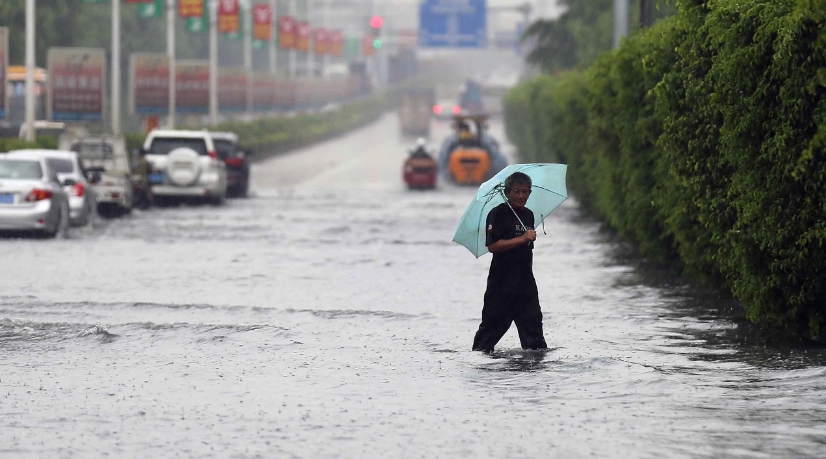On October 5, 2025, China’s state broadcaster CCTV reported that Typhoon Matmo, the 21st typhoon of the year, made landfall along the coast of Guangdong Province in southern China at around 2:50 p.m. local time, bringing maximum wind speeds near its center of 42 meters per second (about 151 kilometers per hour).

Before making landfall, the typhoon brought strong winds and high waves to the Leizhou Peninsula and Hainan Island, causing storm surges that flooded ports, shops, and coastal areas. Fishing ports were among the hardest hit, forcing residents to evacuate urgently. Power and water supplies in several areas were cut off for safety reasons.
CCTV footage showed fallen trees, heavy rainfall, and rough seas battering cities across Guangdong and Hainan. Many fishing boats were seen rushing back to port to seek shelter from the storm.
Authorities issued a red typhoon alert and an orange heavy rain alert, the two highest levels in China’s four-tier warning system. Guangdong, Hainan, and Guangxi provinces also raised their emergency response measures to the highest level.
According to the Guangdong Flood and Typhoon Control Headquarters, more than 271,500 people were evacuated in Guangdong, while over 197,000 residents were relocated from high-risk areas in Hainan. In Haikou, schools, government offices, businesses, and public transport systems were suspended for at least one day, while Haikou Meilan International Airport canceled all flights and closed several sea-crossing bridges. In the Guangxi Zhuang Autonomous Region, all ferry services were suspended, and more than 26,000 tourists were evacuated from Weizhou Island. Meanwhile, maritime authorities ordered over 20,000 fishing vessels back to port and evacuated more than 4,000 offshore oil workers to safety.
Thousands of rescue personnel were deployed in advance to assist residents in case of severe impact. As of now, no casualties or missing persons have been reported from the storm.
https://www.thairath.co.th/news/foreign/2887225
